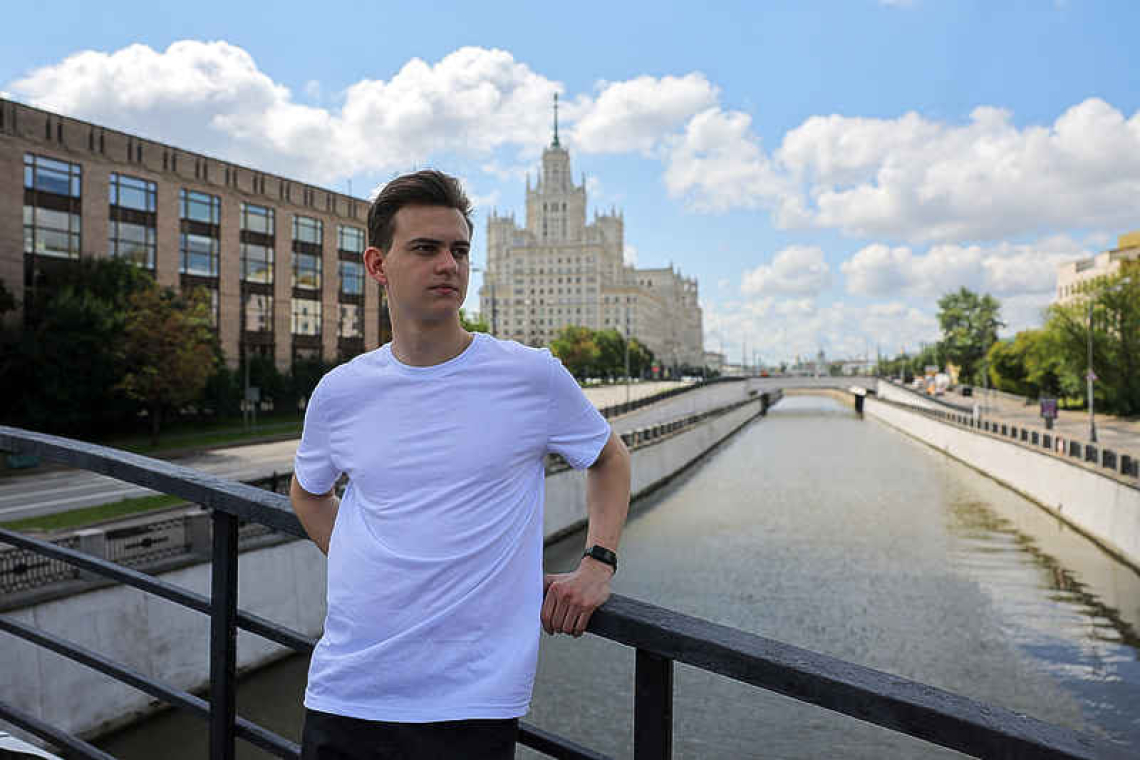MOSCOW--On a warm July day in the Russian capital, young couples stroll hand-in-hand along the Moskva river as pleasure boats drift lazily downstream, the towers of the Kremlin poking up from behind the treetops.
During Moscow's idyllic summer months, Reuters journalists interviewed four young Russians living there to hear how their lives have changed since the start of what the Kremlin calls its "special military operation" in Ukraine. All four were born around the turn of the millennium, when President Vladimir Putin ascended to power, and have known no other Russia than the one he controls. Some spoke of study plans and jobs upended, others, of fear of an unknown and unpredictable future. But none of the four said there was much they could do to influence Russia's direction. Instead, as one young man put it, there was nothing to do but adjust to a new reality and "carry on." The interviews have been condensed and edited for clarity. Sabina, 23, born in Moscow of Abkhaz ancestry, who studied data journalism at Moscow's Higher School of Economics: “Before 2022 I had thoughts that I could go somewhere to study, enrol in ? universit? (abroad). I wanted to enrol in a university in Finland but kept putting it off, though I wanted it so much.Now it seems that I should not go anywhere. Not without my family, at least. Because, OK, I might go away, but who knows what happens next. Something might happen to them if they don't leave the country with me. “It seems that now we are making a choice: on which side of the border we remain. You are either on one side or the other. And it's a final choice.” Maxim Lukyanenko, 20, a student from Krasnodar in southern Russia studying foreign languages and intercultural communication at the Higher School of Economics, and a founder of 'White Raven,' a patriotic, pro-military organisation: “I have an optimistic point of view, so for me it's an opportunity to learn something new. Europe has closed down (for us), let's set our sights to Asia. There are lots of great things there. “I plan to study a master's course in China…I think they are very interesting people, an interesting nation. In general, Russia does need to strengthen ties with China. They are top blokes, we need to learn something from them. And to teach them something, of course.” Konstantin Konkov, 23, studied biology at Moscow State University, elected last year as an independent candidate to Moscow's municipal council: “I'm mostly into public activism, for the most part politics and ecology… We set up neighbourhood clean-ups. We help animal shelters. We collect aid for refugees. “Of course, studying abroad to gain some knowledge and then put it into practice here is a rather tempting idea. But at the moment I feel that I'm needed here. And since I was elected a municipal deputy, for the next five years I plan to stay here, in my district, helping people as much as possible. “Since February last year, a lot of people I know, activists and others, have left Russia. It does have an impact on our campaigns and the quality of horizontal communication. Just think about it: the most active people, people who do care about what's going on in the country, have been ripped out of the country. Very few have stayed. In this situation it makes carrying out any campaigns, public or political, very difficult. But we carry on.” Ivan Sokolov, 25, studied economics in Moscow and now works as a data analyst, left Russia briefly for Kazakhstan but has since returned to Moscow: “(Talking about his first reaction to mobilisation in Russia) I was in a total state of shock for at least one day, absolutely numb. I didn't understand what it was and why and how to live with it. “The mobilisation was announced, I think, on Tuesday, and my friends and I flew away on Sunday. The route was long. At first we flew to Astrakhan (in southern Russia), then we hitchhiked to Atyrau in Kazakhstan. It took us two days to cross the border. “My plan of finding a job abroad failed…So I had to live on my savings, eating through them gradually. “Now I see that negative developments in geopolitics, for example, don’t have any impact on me. I'm totally cool about them. “My friends are here, my family is here. I was born and grew up in this country. I can't change and fix everything in the country, so I'm forced to come to terms with it, get used to it, and move forward.







